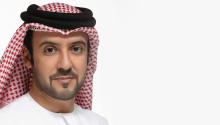Why the rise of new money is driving a surge in Asian family offices

Having seen a rise in demand for flexibility within a traditionally rigid banking system, Fargo Wealth Group was established to offer a wide range of expertise to ultra-high-net-worth (UHNW) individuals and families - from wealth management to asset management and family office services to FinTech innovation.
A multi-family office and external asset manager serving UHNW clients around the world, Fargo Wealth Group is headquartered in Hong Kong with offices across the mainland of China and Singapore, and booking centres in New York, Liechtenstein, Zurich, Hong Kong and Singapore.
With a core development strategy to serve new economy customers, Fargo Wealth also establishes red chip structures for new economy enterprises prior to the initial public offering (IPO) and designs the pre-IPO structure for company management teams and early-stage investors. Additionally, the firm has extensive knowledge of setting up trusts for employee shareholding platforms and seeks out bespoke investment opportunities to meet clients’ individual goals.
Here, Jefferson Sun, founder and CEO of Fargo Wealth Group Limited, talks about how the past ten years have been a golden decade for Chinese entrepreneurs and what local governments are doing to help establish a raft of new family offices as a result…

What were the origins of Fargo Wealth Group?
We founded the firm in 2017 with the goal of helping the needs of Chinese new money, a service that we found could not be 100% fulfilled within existing product services. We realised that more and more Chinese clients wanted to open multiple bank accounts, so I discussed the idea of Fargo Wealth, a total External Asset Manager (EAM) serving UHNW global clients, with my three co-founders - all alumni from Hong Kong’s banking community - and we got the licenses and quit our jobs and started the firm!
What are the main fields in which Chinese new money is being made?
The past ten years has been a golden decade for Chinese entrepreneurs to build up their business models based on new technology. It has also been a golden period for China as a whole, with a fast-growing gross domestic product (GDP).
A lot of the new money comes from mobile device and related innovations. As a result, many of the new ultra-high-net-worth individuals tend to be young and very well educated, many of them are programmers or product managers and come from an engineering background.

You are headquartered in Hong Kong with offices across China and Singapore, how do those respective governments support family businesses looking to establish themselves in the region?
Now that Hong Kong has fully reopened after the Covid-19 pandemic, a specific government unit has been set up to help promote Hong Kong as the ideal jurisdiction for clients to establish a family office. The government has already set up a goal to attract more than 200 single family offices by the end of the 2025. At the current rate of growth, I think that’s a very reasonable target.
The Hong Kong government has very strong mutual trust and mature support and understanding from the central government in China. Hong Kong has also learned quite a lot from the Singaporean way of doing things, which has rebalanced a great deal in the past few years.
Campden Wealth’s 2022 Asia Pacific Family Office Report found there is an increased interest in sustainable investing. 42% of those surveyed now invest sustainably, an increase of four per cent on last year and two per cent higher than the global average. This is expected to increase to 50% over the next five years. In your opinion, how is the region adapting to the challenges and opportunities of sustainable investing?
It's definitely a global subject and, in Hong Kong and mainland of China, we're adapting very fast. The environment topic is being strongly addressed. The rise of the electronic vehicle industry, for example, is booming throughout the China mainland and Hong Kong, with total coverage being very close to 50%.
For clients in Hong Kong, there’s a strong focus on sustainable investment. However, from my experience, we don't approach the concept of sustainability from a macro framework, we tend to enter from a very tangible and specific sector - for example, the battery industry - and focus and scrutinise the affected supply chain, from the government regulator to the industry player to the clients.
Via this more targeted micro approach, there are more and more clients who are putting their money into the sustainable investment, compared with their European peers.

Global Environmental, Social and Governance (ESG) assets are expected to exceed US$41 trillion during 2022, or roughly one third of all Assets Under Management (AUM). Approximately half this total is in North America, and one third in Europe, leaving around 15% for Asia-Pacific and Japan. However, in terms of UHNW family engagement, our survey points to North America lagging behind Asia-Pacific. Why do you think ASPAC families are so engaged?
The Chinese government is very much pushing on that particular area as they think it's a sustainable way for the economy to grow. It's a strategic opportunity for the Chinese industry to compete with their global peers, so they spend a lot of their efforts and investment on this area.
By 2030, they want to achieve certain environment criteria set by global standards and there is a big push to get family-led businesses on board. Family businesses are, in the main, interested in establishing ESG measures in a much more direct way, so we’re focusing on products and solutions to help mitigate those designs.
To the point of the report findings, I believe there's much more room for Asian families to effectively increase ESG allocation to at least 20% to 30% of AUM.





